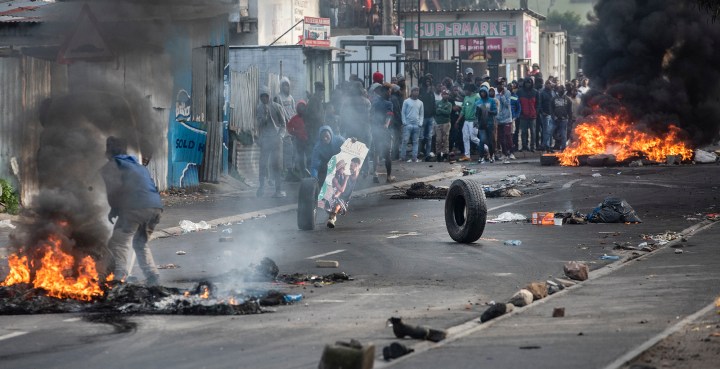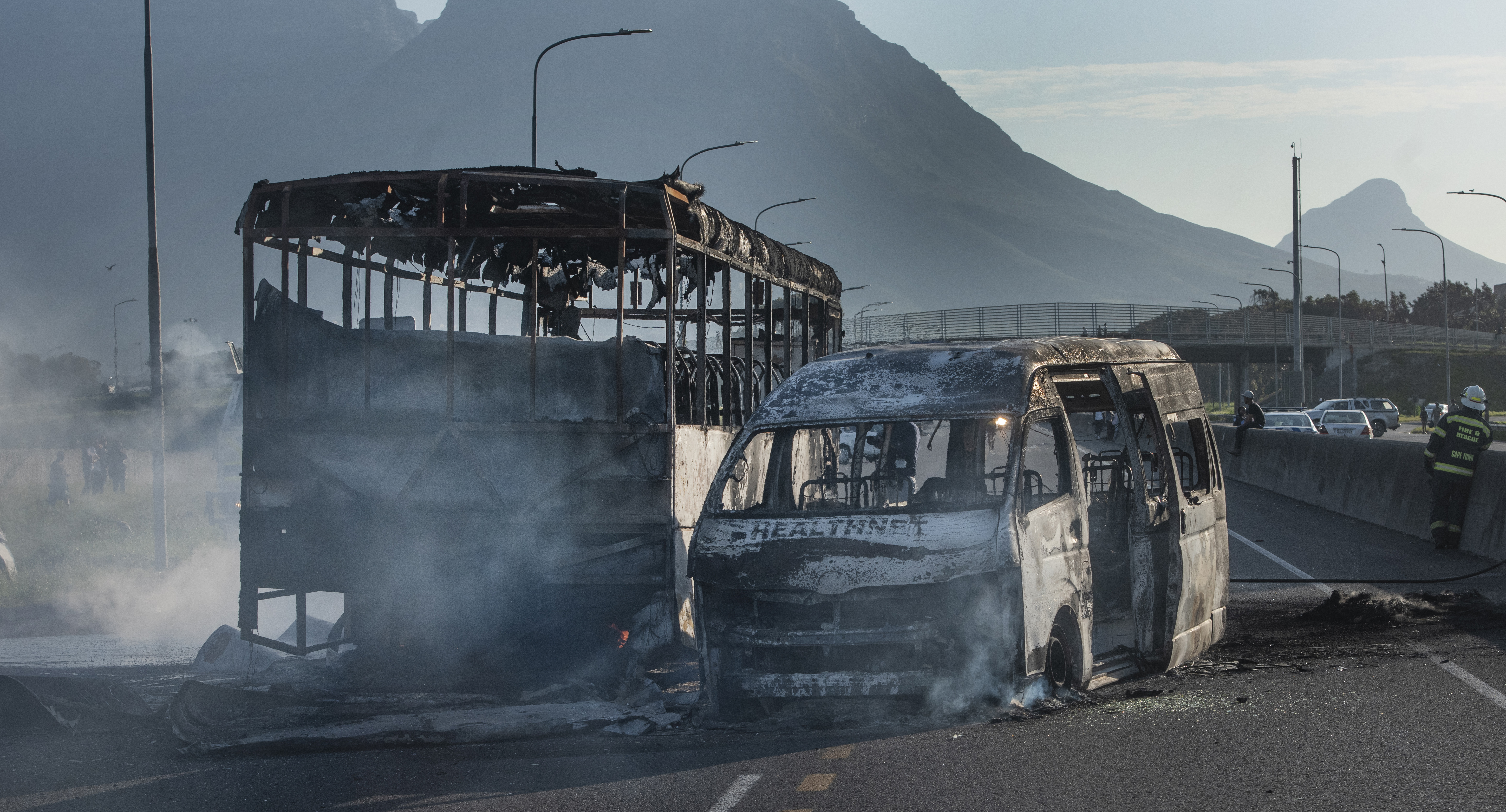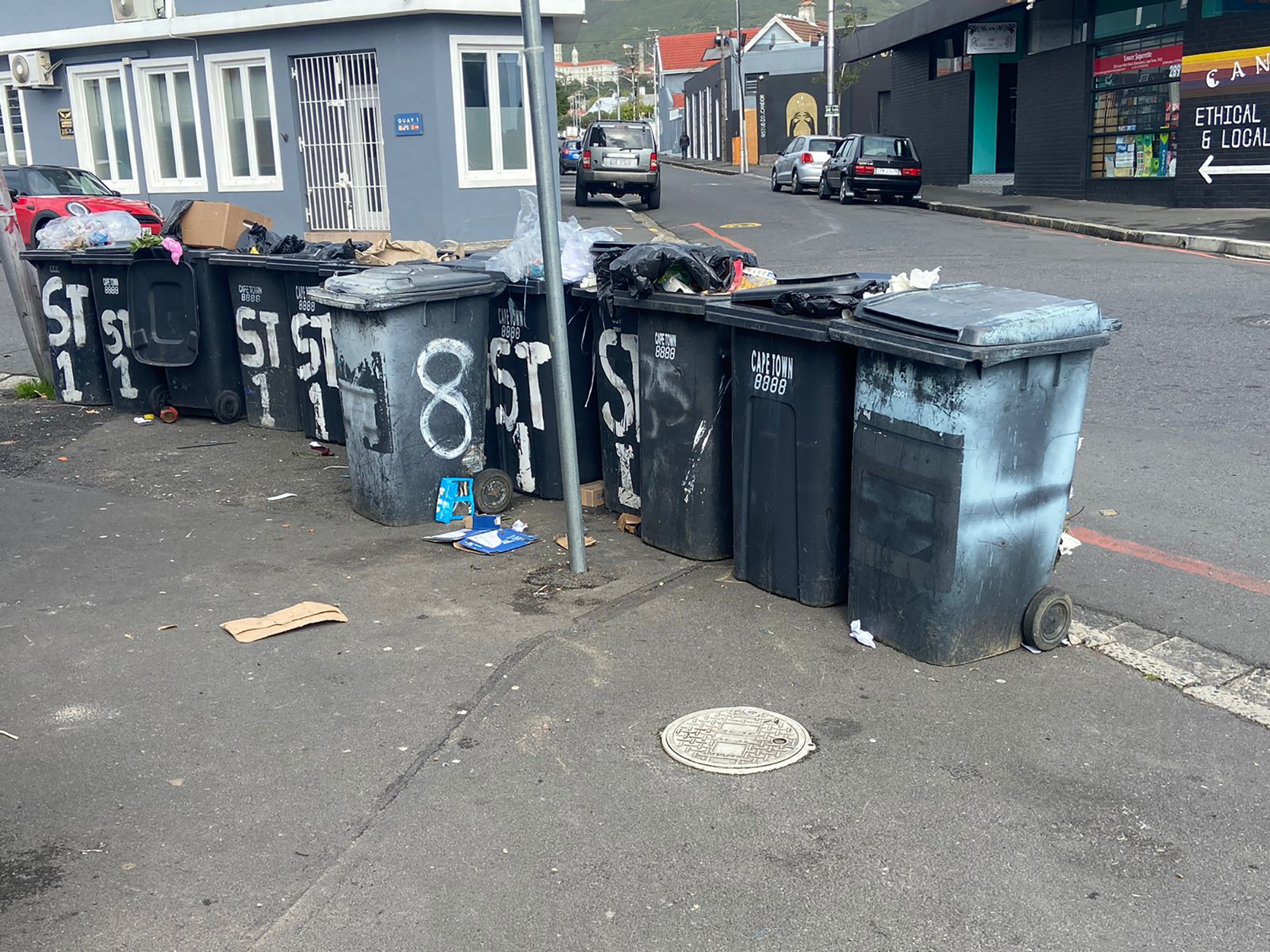TRANSPORT STRIFE
Taxi strike affects service delivery in Western Cape municipalities

One of the effects of the now week-long taxi strike in the Western Cape is delays in service delivery. While some communities were already having service delivery issues, the strike has compounded them.
Basic services such as refuse collection, sanitation and electrical services have become casualties of the week-long taxi strike in the Western Cape. As commuters wait to hear if there will be taxis in the coming days, residents are waiting to hear when services will operate again.
The taxi strike – on its seventh consecutive day on Wednesday, 9 August – has affected service delivery in not only Cape Town, but in the rest of the Western Cape. It is affecting water and sanitation provision and electricity supply, as staff cannot enter hotspot areas to fix problems or because staff shortages affect service.
Both public and private services have been affected. Parow resident Asive Mbinjana told Daily Maverick her bathroom had been blocked since Monday, but due to the strike, her usually reliable plumber could not get to her area.
“I reached out to a trusted plumber but I was informed they couldn’t work as travelling was unsafe,” she said.
As Mbinjana lives in a rented room on a property, she now needs to use a fellow renter’s bathroom while she waits for a plumber to arrive.

A burnt-out bus and Healthnet taxi on the N2 near Langa in Cape Town on 3 August 2023. (Photo: Gallo Images / Brenton Geach)
At least five people have been killed in incidents directly related to the strike. There have also been incidents of stone-throwing and roads being blocked, which make travel dangerous for those using private vehicles.
Read more in Daily Maverick: Counting the cost — economic fears set in after five days of Western Cape taxi strike
Municipal officials also cannot get to communities where help is most needed.
In the densely populated Taiwan informal settlement in Site C, Khayelitsha, a dire issue of uncollected waste was already igniting concerns about public health and safety before the taxi strike.
“The issue of uncollected waste has been a problem for a long time. Dirt and rubbish [are] piling up [in] the streets and becoming a health hazard for the community,” said community leader Ndibulele Wababa.
The city had undertaken to resolve the issue of uncollected waste in Taiwan at the beginning of August, but the informal settlement was deemed “inaccessible” due to the strike. The usual rubbish collection on Wednesday mornings did not happen, meaning waste continued to pile up.
Taiwan resident Khaya Mvakwendlu told Daily Maverick: “Last month we protested against the City of Cape Town because they weren’t collecting waste that was already piling up. Now, with a taxi strike happening, the situation has obviously become even worse.”

Household waste has not been collected in Observatory. Bins are piling up and the neighbourhood is starting to smell. (Photo: Samane Junior Marks)
Service delivery is not only a problem in informal settlements. Daily Maverick reported that Observatory residents were also waiting for refuse services.
In the Ward 54 area, which includes Sea Point, Fresnaye, Bantry Bay, Clifton and Camps Bay, refuse removal was delayed. Councillor Nicola Jowell told residents that a contractor had deemed it safe for trucks to leave the depot and put a team together. Trucks would be in the Camps Bay area to collect as much refuse as they could, in reduced numbers.
This week, the City of Cape Town said services continued to be disrupted by the strike. The city pleaded with affected residents on Monday, 7 August to “not to dump illegally and to please keep waste on their property until it is safe to clear the backlog”.
The city said an effort was being made to ensure services continued where it was possible and safe to do so. The remaining backlogs would be cleared as soon as possible.

A window broken by attempted looters at a petrol station shop in Khayelitsha, Cape Town on 7 August 2023. (Photo by Gallo Images / Die Burger / Jaco Marais)
Water and sanitation services, too, were affected with the city saying it could respond to service requests only when it was safe to do so.
Libraries were also closed, as well as some clinics. Customer offices, such as housing offices and account payment offices in Delft, Belhar, Khayelitsha and Brackenfell were also closed.
It’s not just Cape Town
Service delivery issues have also occurred in areas such as Stellenbosch. The municipality told residents that refuse collection delays should be expected following the non-availability of trucks.
Refuse removal delays expected in the following areas due to non-availability trucks as a result of the #Taxistrike:
➡️ Kayamandi
➡️ Klapmuts
➡️ Brandwatch/DalsigResidents are advised to leave bins out as we will try our best to service all areas scheduled for today.
— Stellenbosch Municipality (@StellMun) August 8, 2023
In the coastal municipality of Knysna, Mayor Aubrey Tsengwa said the strike affected the transportation and availability of its municipal workforce – in particular, those responsible for maintaining water and sanitation systems, road repairs, electrical services and refuse collection.
Eskom services
Power utility Eskom has also been affected by the ongoing strike. On 4 August, Eskom confirmed a vehicle belonging to the utility had been petrol-bombed in Khayelitsha, an area which has become a hotspot for violence.
Eskom said the incident was related to the taxi strike. Other incidents had been reported across the city. At that point, Eskom said it would stop sending technicians to resolve faults and perform other electrical work in Khayelitsha, Delft, Belhar, Du Noon, Philippi and Fisantekraal.
#EskomWesternCape #MediaStatement
Eskom vehicle petrol bombed amid taxi strike pic.twitter.com/iQr79xOenJ
— Eskom Hld SOC Ltd (@Eskom_SA) August 4, 2023
By Monday, 7 August, due to increased protests linked to the taxi strike, Eskom confirmed the withdrawal of services in additional areas. It also withdrew services from Bloekombos and Wallacedene in Kraaifontein, Witsand in Atlantis, Plettenberg Bay and Worcester over worker safety concerns.
“Unfortunately, this will affect the electricity restoration times to these areas and only once the areas are declared safe will operators be dispatched to continue work,” said Eskom. DM

















 Become an Insider
Become an Insider
Comments - Please login in order to comment.